Mastering Hotel Marketing Strategies: Elevating Your Brand in the Post-COVID Era
16 March 2024 | By Itumeleng Kgosana
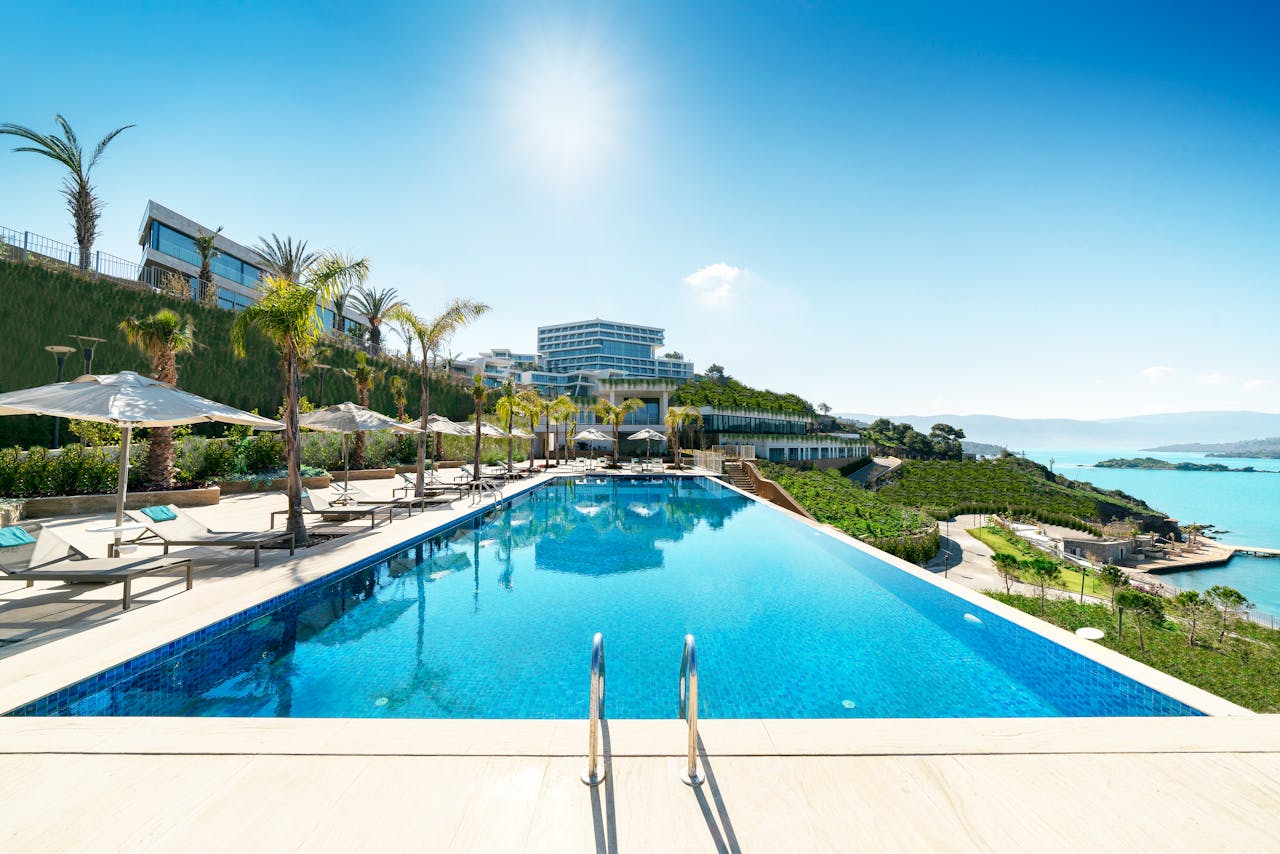
In today's dynamic hospitality landscape, mastering hotel marketing strategies is essential for staying competitive and thriving in the South African market. As the hospitality industry in South Africa continues to evolve, it's crucial for hoteliers and marketers to adapt their approaches to meet the changing needs and expectations of guests. In this blog post, we'll explore the power of storytelling for hotel brands, delve into effective marketing strategies post-COVID-19, and provide actionable insights to elevate your hotel's marketing efforts.
Overview of South Africa's Tourism & Hospitality Industry
In this section, we will cover the state of hospitality industry in South Africa, key trends and challenges facing hoteliers and marketers, and highlight the importance of staying agile and innovative in developing effective hotel marketing strategies.
Otherwise, you can skip to Storytelling for Hotel Brands, Hotel Marketing Strategies Post-COVID-19, Post-covid-19 VS Pre-covid-19 Hotel Marketing Strategies, or the relationship between hotel marketing and hotel management strategies.
The State of Hospitality Industry in South Africa
1. International Tourism Trends
Pre-pandemic Recovery
- UNWTO reports international tourist arrivals reached 88% of pre-pandemic levels in 2023.
- South Africa reflects similar positive trends in tourism recovery.
South Africa's Tourism Statistics
- Tourism arrivals in South Africa improved steadily from 2021 to 2023.
- December 2023 witnessed 3.5 million arrivals, exceeding both November 2023 and December 2022 figures.
2. Regional Tourist Arrival
Other African Countries
- Notable recovery, surpassing pre-pandemic levels by 11.9% in Q4 2023.
South Africa's Tourism Statistics
- Overseas arrivals reached 78.5% of 2019 levels.
- SADC reached 90.2% of 2019 levels.
3. Tourist Arrival Comparisons
Year-on-Year Comparison (Q4 2022 vs. Q4 2023)
- Overseas tourists increased by 17.8%.
- SADC tourists increased by 32.5%.
- Tourists from 'Other' African countries increased by 41.1%.
Regional Breakdown
- East and Central Africa had the largest increase (51.2%), followed by West Africa (36.5%) and North Africa (9.5%).
4. Purpose and Duration of Tourist Stays
Purpose of Visit (December 2023)
- Majority (97.9%) visited for holidays.
- Business, students, and medical treatments constituted a minor fraction.
Duration of Stay
- Overseas and 'other' African tourists spent five to seven days, whereas SADC tourists spent an average of two days.
- Overseas tourists spent more days in warmer months, averaging around seven days.
5. Tourism Trade Balance
Negative Tourism Trade Balance
- South Africa witnessed its first negative tourism trade balance in 2021.
- Decline attributed to decreased inbound tourism expenditure and increased outbound tourism expenditure.
6. Domestic Tourism Impact
Domestic Tourism Expenditure
- Increased domestic tourism expenditure in 2021 contributed to sector's resilience.
- Domestic tourism expenditure recovered to 86% of pre-pandemic levels.
Employment and Economic Contribution
- Tourism sector contributed 2.3% to GDP in 2021.
- Direct employment in tourism increased but remained below pre-pandemic level.
7. Impact of COVID-19 on Tourism
Decline in Tourist Arrivals (2020-2021)
- Drastic drop in tourist arrivals due to lockdowns and travel restrictions.
- Domestic tourism helped sustain the industry amidst international travel restrictions.
Recovery Signs
- Tourist arrivals in South Africa showed improvement in 2022, albeit still below pre-pandemic levels.
- Positive momentum in tourist arrivals in 2022 offers optimism for the post-pandemic era.
To download or get the full South African Tourism & Hospitality Data for 2023
Click here or on the button below.
Conclusion of the state of hospitality in South Africa
In conclusion to the state of hospitality industry in South Africa, the tourism sector in South Africa has demonstrated resilience in the face of the COVID-19 pandemic, with gradual signs of recovery observed in international tourist arrivals. While arrivals have reached 88% of pre-pandemic levels globally, South Africa and other African countries are still on the path to full recovery.
Domestic tourism has shown resilience, with increased expenditure partially offsetting the decline in international arrivals. However, challenges remain, including a negative tourism trade balance and the lingering impact of lockdowns and travel restrictions. Despite these challenges, the sector's pre-pandemic contributions to GDP, employment, and expenditure highlight its importance to the South African economy.
Moving forward, continued efforts to support the recovery of the tourism sector, coupled with effective management of COVID-19 risks, will be crucial for sustaining its contribution to economic growth and job creation in South Africa.
Key trends and challenges facing hoteliers and marketers in South Africa’s Hospitality Industry
According to PwC, the following trends was observed.
- "Online travel sites are allowing visitors to become more price conscious, which will dampen ADR (average daily rate) growth.
- South Africa is becoming more aggressive in bidding for MICE (meetings, incentives, conferences and exhibitions) business, supporting growth in international tourism.
- Growth in domestic tourism and adventure tourism will benefit mid-market hotels appealing to millennials.
- Airbnb growth will compete at the low end of the market but will not have much of an impact at the high end."
The importance of staying agile and innovative in developing effective hotel marketing strategies
In the hospitality industry, effective marketing strategies are vital for hotels to attract guests and maintain a competitive edge. However, with evolving consumer preferences, technological advancements, and global trends, the landscape is constantly shifting. Therefore, it's imperative for hotels to stay agile and innovative in their approach to marketing.
Here are 5 important reasons to stay agile & innovative in developing effective hotel marketing strategies

-
Changing Consumer Preferences
Consumer preferences in the hospitality industry are constantly evolving. To effectively market a hotel, it's essential to stay attuned to these changes and adapt marketing strategies accordingly. Being agile allows hotels to respond quickly to shifts in consumer behaviour and preferences.
-
Competitive Landscape
The hospitality industry is highly competitive, with new hotels entering the market regularly. To stand out from the competition, hotels must continuously innovate their marketing strategies to attract and retain customers. Agile marketing enables hotels to stay ahead of competitors by quickly implementing new tactics and ideas.
-
Technology Advances
Technology plays a significant role in modern marketing strategies. From social media platforms to online booking systems, technology is constantly evolving, providing new opportunities for hotels to reach and engage with customers. Staying agile allows hotels to leverage emerging technologies effectively and integrate them into their marketing efforts.
-
Global Events and Trends
Global events, such as economic fluctuations, pandemics, or shifts in travel patterns, can have a significant impact on the hospitality industry. Hotels must be agile enough to adapt their marketing strategies in response to these events and trends to remain relevant and competitive.
-
Customer Expectations
Today's consumers have high expectations when it comes to their hotel experiences. They expect personalized marketing messages, seamless booking processes, and unique amenities. By staying agile and innovative, hotels can meet and exceed these expectations, leading to increased customer satisfaction and loyalty.
In summary, the necessity for agility and innovation in hotel marketing strategies stems from the ever-changing landscape of consumer preferences, competitive pressures, technological advancements, global influences, and escalating customer expectations. By embracing flexibility and creativity, hotels can effectively navigate these challenges, ensuring their relevance and success in an increasingly dynamic market.
Storytelling for Hotel Brands

The impact of storytelling on hotel branding and guest engagement
In the hospitality industry, effective marketing strategies are vital for hotels to attract guests and maintain a competitive edge. However, with evolving consumer preferences, technological advancements, and global trends, the landscape is constantly shifting. Therefore, it's imperative for hotels to stay agile and innovative in their approach to marketing.
Emotional Connection
Storytelling allows hotels to create a deeper emotional connection with guests by sharing narratives that resonate with their values, aspirations, and desires. By crafting compelling stories about the hotel's history, unique features, or guest experiences, hotels can evoke positive emotions and forge stronger bonds with their audience.
Brand Differentiation
In a crowded hospitality market, storytelling serves as a powerful tool for brand differentiation. By showcasing their distinctive identity, culture, and values through storytelling, hotels can stand out from competitors and attract guests who align with their brand story and ethos.
Memorable Experiences
Storytelling enhances guest experiences by adding layers of depth and meaning to their stay. When hotels weave narratives into every touchpoint of the guest journey, from website content to in-room amenities, they create memorable experiences that leave a lasting impression and encourage repeat visits.
Building Trust and Credibility
Authentic storytelling builds trust and credibility with guests by showcasing the hotel's transparency and integrity. When hotels share genuine stories about their commitment to sustainability, community engagement, or exceptional service, guests are more likely to perceive them as trustworthy and reliable.
Word-of-Mouth Marketing
Compelling stories inspire guests to share their experiences with others, amplifying the hotel's reach through word-of-mouth marketing. When guests feel emotionally connected to a hotel's brand story, they become brand advocates who eagerly recommend the hotel to friends, family, and followers, thereby increasing awareness and driving bookings.
In conclusion, storytelling is a powerful strategy for hotels to strengthen their brand identity, create meaningful connections with guests, and drive business growth. By effectively leveraging storytelling, hotels can differentiate themselves in the market, foster loyalty among guests, and ultimately enhance their overall success.
Examples of successful storytelling campaigns within the hospitality industry
This are some of the example of storytelling for hotel brands.
-
Feel the beat of the City | Four Seasons Hotel in New Orleans
-
“Stay in the moment” campaign - Golden Hour | JW Marriott
As they describe it, a divided family comes together in the spaces of JW Marriott. Starring Korean actor Lee Minho, [the] commercial showcases how family drama melts away with the backdrop of dramatic views and serene spaces. An ode to the K-drama, the film personifies that when we learn to stay present, and let the unexpected happen, we can truly find ourselves, and each other.
-
See beyond | Merriott
-
Through a New Lens: W New Orleans with Kennedi Carter for PhotoVogue | W Hotels Worldwide
-
Where Can We Take You? | Merriott Bonvoy
How hotel brands can leverage storytelling to create authenticity and differentiate themselves in the market?
Utilizing storytelling is a powerful method for hotel brands to establish genuine connections with guests and stand out in a competitive market. By weaving narratives that resonate with guests' emotions and values, hotels can create memorable experiences and build long-lasting relationships.
Here’s how hotel brands can leverage storytelling to create authenticity and differentiate themselves in the market.
Discover Unique Stories
Uncover and share authentic narratives about the hotel's history, values, and guest experiences to create emotional connections with guests.
Integrate Storytelling Across Touchpoints
Incorporate storytelling into all guest touchpoints, from the website to in-room amenities, to reinforce the brand narrative consistently.
Focus on Personalization
Tailor stories to different guest segments to resonate deeply and create stronger connections based on individual preferences and interests.
Showcase Authenticity
Be genuine and transparent in storytelling efforts, highlighting the hotel's values, practices, and commitments to build trust with guests.
Engage Guests in Co-Creation
Encourage guests to share their experiences and perspectives, incorporating user-generated content to add authenticity to the brand's narrative.
Highlight Local Culture
Celebrate the destination's culture, traditions, and attractions through storytelling, offering authentic experiences to appeal to travellers seeking immersion.
Measure and Iterate
Continuously evaluate storytelling efforts through guest feedback and engagement metrics, refining strategies to ensure relevance and impact over time.
Storytelling serves as a powerful tool for hotel brands to create authentic connections with guests, differentiate themselves in the market, and drive long-term success. By embracing storytelling across all aspects of the guest experience and creating genuine engagement, hotels can establish strong emotional bonds with guests and inspire loyalty and advocacy.
As a marketing communication agency that specialises in storytelling through branding and content creation, using digital marketing tools and strategies, and publicity throughout various media channels, our experience revealed to us that storytelling is one of the most effective ways to stand out from the other brands, especially for brands heavily reliant on providing customer service or experience. You can learn more about us here or contact us for FREE to get tailor-made marketing strategies for your busines.
Continue to Hotel Marketing Strategies Post Covid-19, or skip to Hotel Management & Marketing.
Hotel Marketing Strategies Post-COVID-19

The Impact of covid-19 on South African Hotel Marketing Strategies
The impact of the Covid-19 pandemic on the tourism and hospitality industry in South Africa necessitated significant adaptations in hotel marketing strategies. Here are some ways in which hotels adjusted their marketing approaches in response to the challenges posed by the pandemic:
Focus on Safety and Hygiene
With health and safety concerns at the forefront of travellers’ minds, hotels prioritized communicating their enhanced cleaning protocols and safety measures. Marketing campaigns emphasized rigorous sanitation practices, social distancing measures, and contactless services to reassure guests of their well-being during their stay.
Flexible Booking Policies
Recognizing the uncertainty surrounding travel plans, hotels introduced flexible booking policies that allowed guests to modify or cancel reservations without penalty. This flexibility was highlighted in marketing messages to encourage bookings with the assurance of risk-free cancellations if travel plans changed unexpectedly.
Promotion of Local Experiences
With international travel restrictions in place, hotels shifted their focus to promoting local and regional travel experiences. Marketing campaigns showcased nearby attractions, outdoor activities, and cultural experiences to appeal to domestic travellers seeking alternative vacation options closer to home.
Digital Marketing and Virtual Experiences
With traditional marketing channels disrupted by lockdowns and social distancing measures, hotels increased their investment in digital marketing strategies. This included ramping up social media presence, launching virtual tours and experiences, and leveraging online advertising to reach potential guests who were spending more time online.
Targeted Offers and Discounts
To stimulate demand during periods of low occupancy, hotels offered targeted promotions, discounts, and value-added packages to attract travellers. These offers often included perks such as complimentary meals, room upgrades, or discounted rates for extended stays.
Emphasis on Sustainability and Responsible Tourism
The pandemic underscored the importance of sustainable and responsible tourism practices. Hotels incorporated messaging about their commitment to sustainability, environmental stewardship, and support for local communities into their marketing efforts to appeal to socially-conscious travellers.
Engagement with Past and Potential Guests
Hotels maintained communication with past guests and potential customers through email marketing, newsletters, and loyalty programs. Personalized messages, updates on safety measures, and exclusive offers were used to nurture relationships and encourage repeat bookings.
Overall, hotels in South Africa adapted their marketing strategies to align with the evolving needs and preferences of travellers during the pandemic. By prioritizing safety, flexibility, local experiences, and digital engagement, hotels aimed to rebuild consumer confidence and drive demand in a challenging operating environment.
Subscribe to our FREE newsletter
To be updated on the latest news and development.
Marketing Strategies and Tactics in the Hotel Industry that can be used today
With the evolution of technology and changes in consumer behaviour, hotels need to adapt their marketing approaches to stay relevant and competitive. The following explores eight key marketing strategies and tactics that hotels can implement today to enhance their visibility, engage with potential guests, and drive bookings.
8 Marketing Strategies and Tactics in the Hotel industry
Hotel marketing strategies and tactics that can be used today include the following.
-
Online Presence and Website Optimization
This involves not only having a visually appealing and user-friendly website but also optimizing it for search engines (SEO) to ensure high visibility in search results. Techniques such as keyword optimization, mobile responsiveness, and fast loading times are essential for improving search rankings and attracting organic traffic.
-
Social Media Marketing
Social media platforms like Instagram, Facebook, and Twitter offer hotels valuable opportunities to connect with customers, showcase their brand personality, and engage with guests in real-time. By sharing visually compelling content, responding to inquiries promptly, and running targeted advertising campaigns, hotels can build a loyal following and increase brand awareness among their target audience.
-
Email Marketing
Email marketing remains one of the most effective ways for hotels to communicate with past and potential guests. Through personalized email campaigns, hotels can share promotional offers, updates, and exclusive deals to incentivize bookings and nurture relationships with their audience. Segmentation and automation tools can also be utilized to deliver relevant content to different segments of subscribers.
-
Search Engine Marketing (SEM)
Paid search advertising, also known as SEM, allows hotels to bid on relevant keywords and display ads prominently on search engine results pages (SERPs). By targeting specific demographics, geographic locations, and search queries, hotels can increase visibility, drive traffic to their website, and generate qualified leads. Continuous optimization and A/B testing are essential for maximizing ROI and improving campaign performance.
-
Content Marketing
Creating valuable and relevant content is key to attracting and engaging potential guests while showcasing the hotel's unique offerings. Whether through blog posts, videos, or interactive guides, hotels can establish themselves as industry experts and provide valuable insights to their audience. Content marketing also plays a crucial role in improving SEO performance and driving organic traffic to the website.
-
Online Travel Agencies (OTAs)
Partnering with OTAs like Booking.com and Expedia can significantly expand a hotel's reach and increase bookings. While OTA commissions may cut into profit margins, the increased visibility and access to a global audience can outweigh the costs. Hotels should carefully manage their OTA relationships and leverage promotional opportunities to maximize revenue and occupancy rates.
-
Review Management
Online reviews have a significant impact on a hotel's reputation and booking decisions. Hotels must actively monitor and respond to reviews on platforms like TripAdvisor and Yelp to address guest feedback, resolve issues promptly, and maintain a positive online reputation. Encouraging satisfied guests to leave positive reviews and implementing feedback into operational improvements can help hotels enhance guest satisfaction and loyalty.
-
Partnerships and Collaborations
Collaborating with local businesses, influencers, and travel agencies can provide hotels with access to new audiences and enhance their credibility within the community. Joint promotions, co-branded events, and referral programs can drive mutual benefits and foster long-term partnerships. By aligning with like-minded organizations, hotels can tap into new markets and differentiate themselves from competitors.
In conclusion, hotels must adopt a multi-faceted approach to marketing to remain competitive in today's dynamic landscape. By leveraging digital channels, optimizing their online presence, and creating meaningful relationships with customers, hotels can increase brand visibility, drive bookings, and ultimately, achieve business success. By implementing the strategies and tactics outlined in this article, hotels can stay ahead of the curve and thrive in an ever-evolving market.
Hotel Marketing Strategies Pre-Covid-19 and post-Covid-19
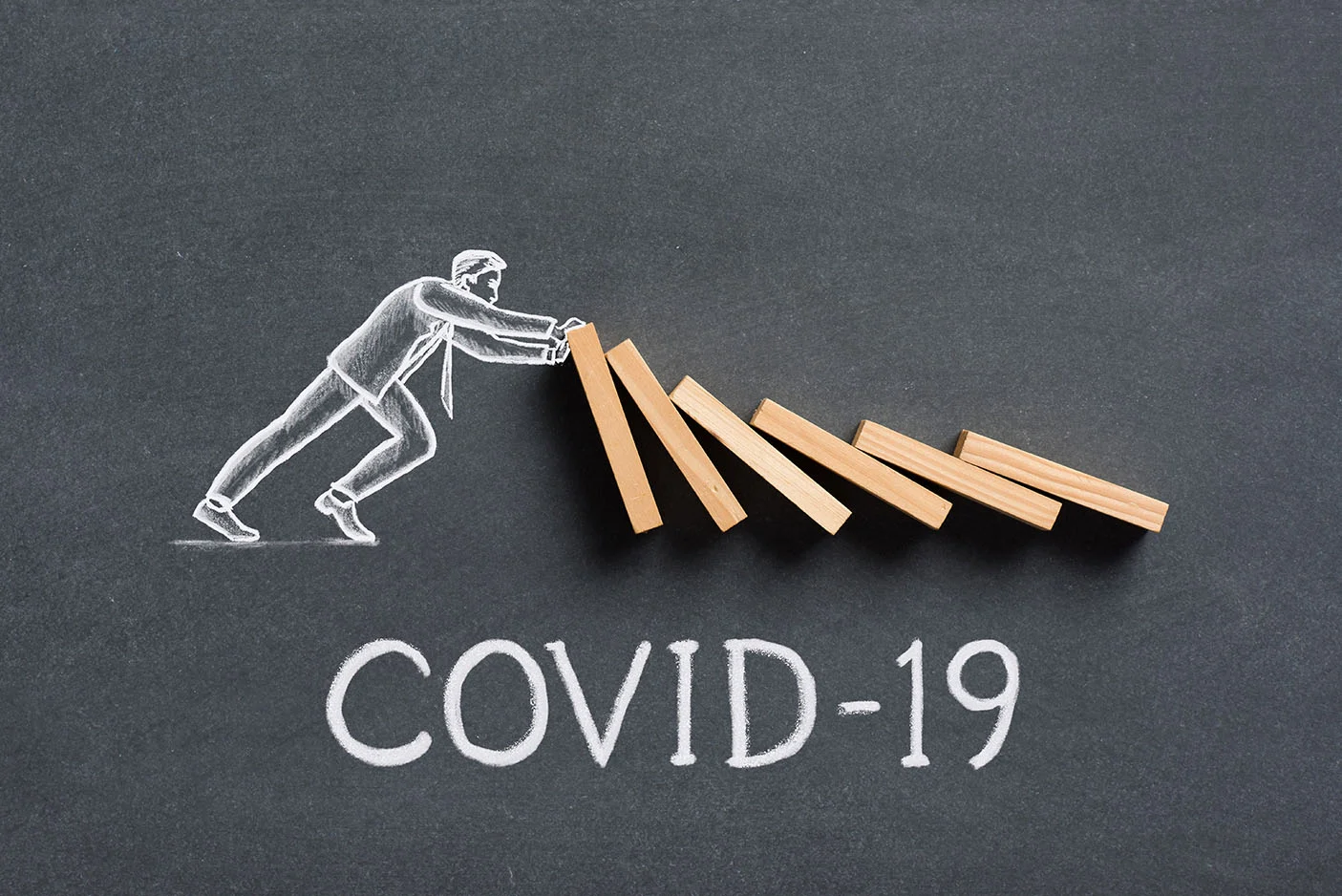
Effectiveness of hotel Marketing strategies pre-covid-19, and adaptation of new hotel marketing strategies post-covid-19.
Effectiveness of pre-COVID-19 Hotel Marketing Strategies
Before COVID-19, traditional marketing strategies like online presence, social media marketing, and email campaigns were effective in driving bookings and engaging with guests. However, the pandemic significantly impacted travel demand and consumer behaviour, leading to a shift in priorities and preferences.
Adapting Marketing Strategies Post-COVID-19
In the post-COVID-19 era, hotels need to adapt their marketing strategies to align with changing consumer expectations and market conditions. Below we will emphasize hotel marketing strategies already covered on the previous section and add 3 more to the list.
7 Hotel Marketing Strategies that can be effective post-pandemic

-
Safety and Hygiene Messaging
Communicating the hotel's safety protocols and hygiene measures to reassure guests and address their concerns about health and safety; Emphasis on the hotel's safety protocols and hygiene measures in your marketing communications. This could involve showcasing rigorous cleaning procedures, staff training on sanitation protocols, and partnerships with health organizations to ensure compliance.
-
Flexible Booking Policies
Provide flexible booking options and cancellation policies to accommodate changing travel plans. This flexibility can help build trust with guests and encourage bookings by alleviating concerns about unexpected changes in travel circumstances.
-
Local and Domestic Targeting
Focusing on targeting local and domestic travellers who are more likely to prioritize safety and shorter-distance travel in the current environment.
-
Virtual Tours and Experiences
Providing virtual tours and experiences to showcase the hotel's facilities and amenities, allowing potential guests to explore the property from the comfort of their homes.
-
Targeted Promotions and Packages
Creating targeted promotions and packages tailored to the needs and preferences of specific guest segments, such as families, remote workers, or wellness travellers.
-
Emphasis on Outdoor and Nature Activities
Highlighting outdoor and nature-based activities and experiences to appeal to guests seeking socially distanced and outdoor-oriented travel experiences.
-
Community Engagement and Support
Engaging with the local community and supporting local businesses to build goodwill and demonstrate the hotel's commitment to sustainability and responsible tourism.
By adapting their marketing strategies to address evolving consumer needs and preferences post-COVID-19, hotels can effectively navigate the challenges and capitalize on emerging opportunities in the recovery phase.
Key Learning and Best Practices for Hotel Marketing Strategy
Overall, the key takeaway is to adapt marketing strategies to align with changing consumer expectations and market conditions post-COVID-19. By prioritizing safety, flexibility, and targeted messaging, hotels can effectively attract guests and capitalize on emerging opportunities in the recovery phase.
Contact Us / Consult for FREE tailor-made digital marketing solutions.
Hotel Management & Marketing Strategies
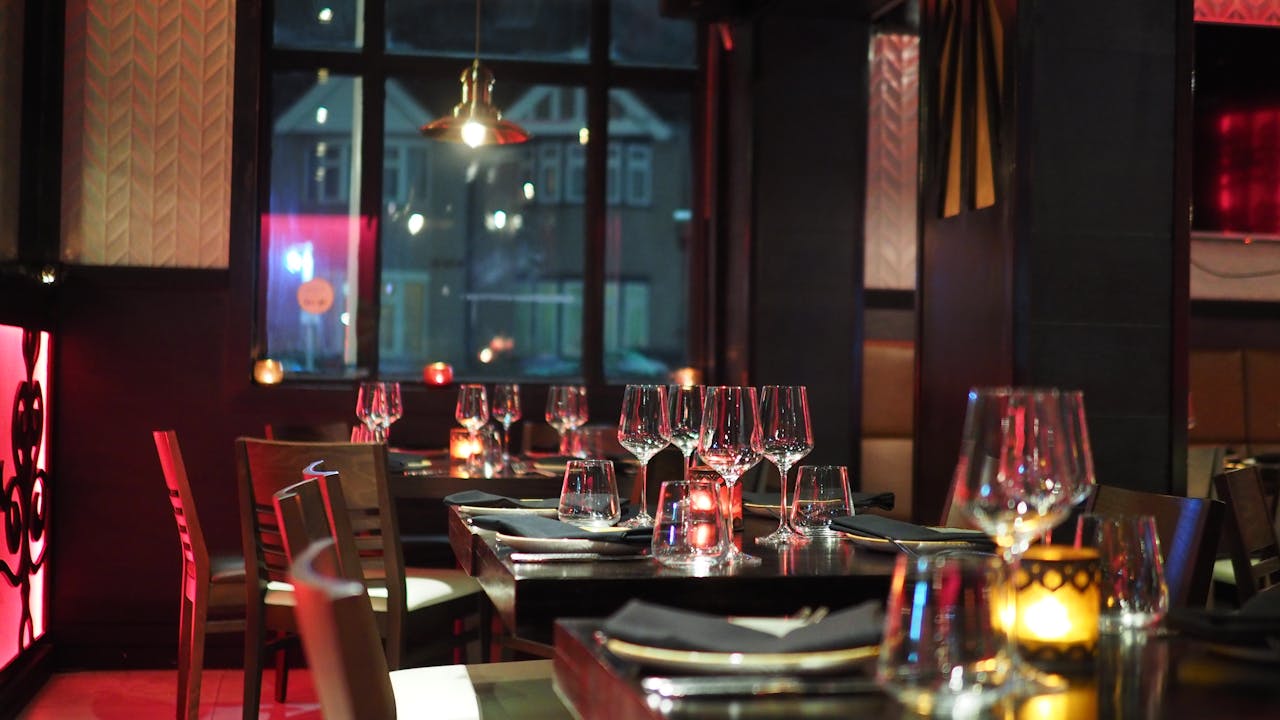
The relationship between marketing strategies and hotel management
The relationship between marketing strategies and hotel management is symbiotic, meaning they depend on each other for mutual success and effectiveness. Here's how they intertwine:
-
Understanding Customer Needs
Marketing strategies rely on insights provided by hotel management regarding customer preferences, behaviours, and expectations. Hotel managers analyse guest feedback, trends, and market research to inform marketing campaigns and tailor offerings to meet customer needs.
-
Brand Identity and Positioning
Hotel management defines the brand identity, values, and positioning, which are then communicated through marketing strategies. Effective collaboration ensures that marketing efforts accurately represent the hotel's unique selling points and resonate with the target audience.
-
Revenue Management
Hotel management plays a crucial role in revenue management, setting pricing strategies, managing inventory, and optimizing revenue streams. Marketing strategies align with these efforts by promoting value propositions, special offers, and pricing incentives to maximize revenue and occupancy.
-
Operational Excellence
Marketing strategies often highlight service quality, amenities, and guest experiences to attract and retain customers. Hotel management ensures operational excellence by maintaining high standards of service delivery, cleanliness, and guest satisfaction, which in turn enhances the effectiveness of marketing efforts.
-
Guest Engagement and Loyalty
Marketing strategies aim to engage guests throughout their journey, from pre-booking to post-stay interactions. Hotel management fosters guest loyalty by delivering exceptional experiences, personalized service, and addressing guest feedback, which reinforces the effectiveness of marketing campaigns and encourages repeat bookings and referrals.
-
Adaptation to Market Trends
Both marketing and hotel management must adapt to evolving market trends, technological advancements, and external factors such as economic changes or global events. Close collaboration enables agile responses to market shifts, ensuring that marketing strategies and hotel operations remain relevant and competitive.
-
Continuous Improvement
Collaboration between marketing and hotel management facilitates a culture of continuous improvement. Feedback loops between departments help identify areas for enhancement, refine strategies, and innovate guest experiences to drive long-term success and sustainability.
In summary, the symbiotic relationship between marketing strategies and hotel management is essential for creating cohesive, guest-centric experiences, optimizing revenue generation, and maintaining competitiveness in the dynamic hospitality industry. Effective collaboration ensures alignment between marketing initiatives and operational goals, ultimately driving guest satisfaction, loyalty, and business growth.
Effective hotel management practices to enhance marketing efforts
Effective hotel management practices can enhance marketing efforts in several ways:
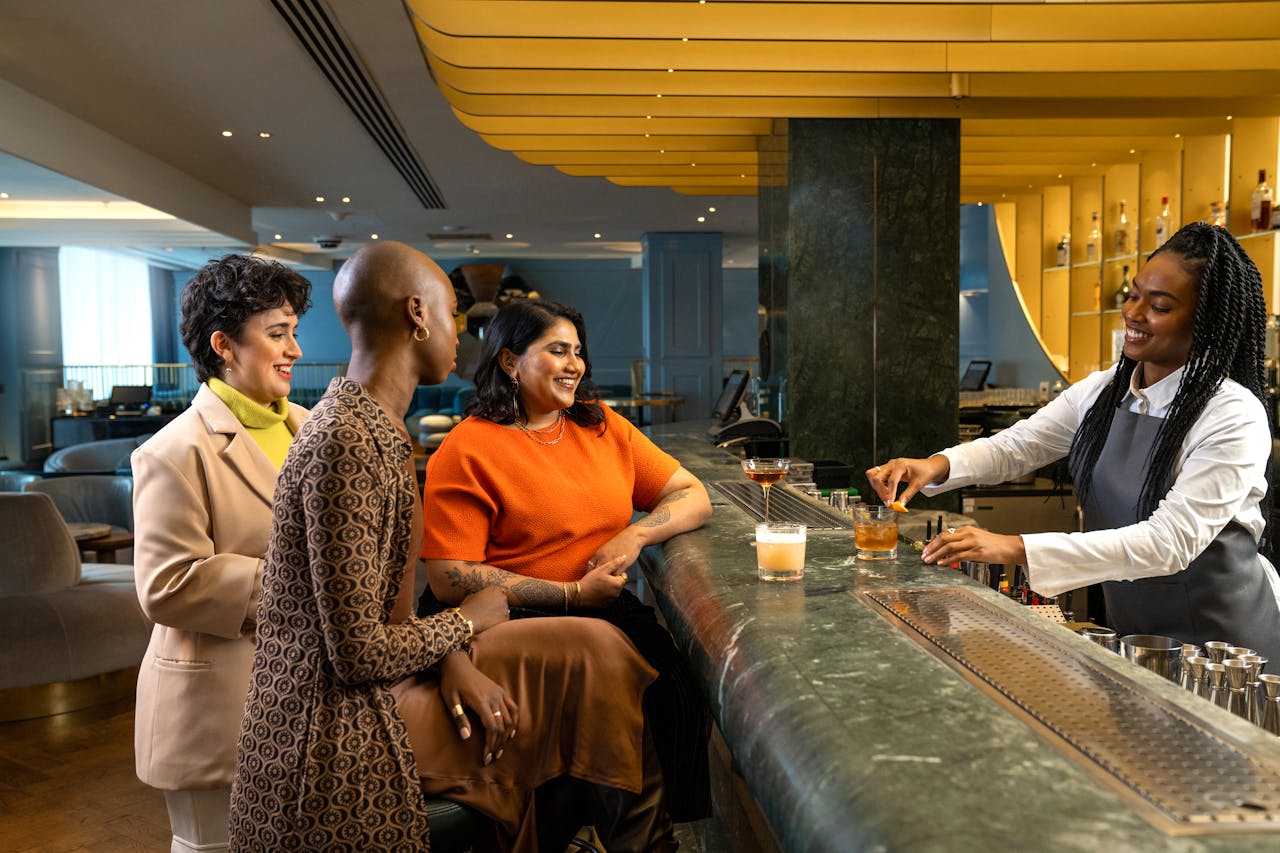
5 effective hotel management practices that can enhance marketing efforts
-
Service Excellence
Providing exceptional service and guest experiences enhances the hotel's reputation and generates positive word-of-mouth marketing. Satisfied guests are more likely to leave favourable reviews, recommend the hotel to others, and become brand advocates, thereby amplifying the effectiveness of marketing campaigns.
-
Feedback Utilization
Hotel management practices that prioritize guest feedback and satisfaction enable marketing teams to identify strengths, areas for improvement, and trends in guest preferences. This feedback informs marketing strategies, allowing them to tailor messaging, promotions, and offerings to better meet guest needs and expectations.
-
Operational Efficiency
Efficient hotel operations contribute to a seamless guest experience, reducing friction points that may negatively impact guest satisfaction. Marketing efforts can highlight these operational strengths, such as quick check-in/check-out processes, responsive customer service, or well-maintained facilities, to attract and retain guests.
-
Brand Consistency
Consistency in brand messaging, values, and guest experience across all touchpoints reinforces brand identity and loyalty. Effective hotel management practices ensure that operations align with the brand promise, enabling marketing teams to communicate a cohesive message that resonates with target audiences and strengthens brand perception.
-
Data-driven Decision Making
Hotel management practices that leverage data analytics and insights enable marketing teams to make informed decisions about target demographics, market segments, and promotional strategies. Data-driven marketing allows for more precise targeting, personalized messaging, and optimization of marketing campaigns for better ROI.
On the other hand, effective marketing efforts can also enhance hotel management practices:
4 effective marketing efforts that can enhance hotel management practices

-
Demand Forecasting
Marketing efforts that generate demand forecasts and insights help hotel management anticipate fluctuations in occupancy, pricing, and guest preferences. This information enables more accurate resource planning, inventory management, and staffing decisions to optimize operational efficiency and revenue generation.
-
Market Intelligence
Marketing teams gather market intelligence about competitor strategies, industry trends, and consumer behaviour, which informs strategic decisions made by hotel management. This insight allows management to stay competitive, identify growth opportunities, and adapt operational practices to meet changing market demands.
-
Brand Differentiation
Marketing efforts that emphasize the hotel's unique selling points, such as location, amenities, or sustainability initiatives, create differentiation in the market. Hotel management can leverage these distinct attributes to tailor operational practices and guest experiences, further enhancing the hotel's competitive edge and market positioning.
-
Guest Engagement
Effective marketing strategies engage guests at every stage of their journey, from initial research to post-stay follow-up. This engagement create loyalty and satisfaction, driving repeat bookings and positive reviews. Hotel management practices can then prioritize guest-centric initiatives, such as personalized service, loyalty programs, and guest feedback mechanisms, to further enhance guest satisfaction and retention.
In summary, the synergy between effective hotel management practices and marketing efforts is essential for driving guest satisfaction, loyalty, and revenue generation. By aligning operational excellence with strategic marketing initiatives, hotels can create compelling guest experiences, differentiate themselves in the market, and achieve sustainable growth and success.
Actionable tips to align marketing goals with the hospitality industry
Aligning marketing and management goals is crucial for driving success in the hospitality industry. Here are some actionable tips to achieve this alignment:
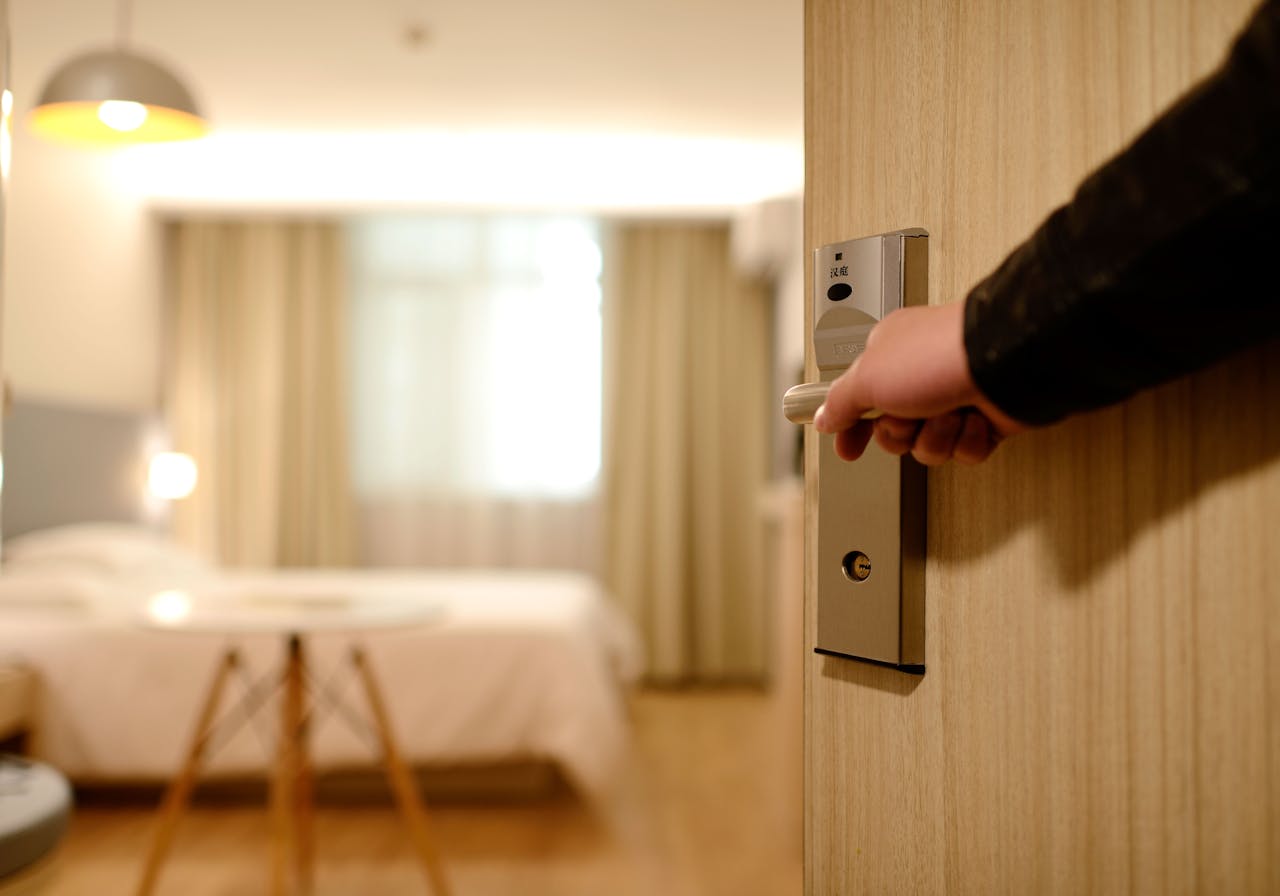
10 Actionable tips to align marketing goals with hospitality industry
-
Establish Clear Objectives
Begin by defining specific and measurable goals for both marketing and management teams. These goals should be aligned with the overall business objectives, such as increasing occupancy rates, enhancing guest satisfaction, or maximizing revenue.
-
Regular Communication and Collaboration
Establish open communication and collaboration between marketing and management teams. Schedule regular meetings or check-ins to discuss progress, share insights, and ensure alignment of strategies and priorities.
-
Shared Understanding of Target Audience
Develop a shared understanding of the target audience and guest personas across marketing and management teams. Collaborate to gather insights on guest preferences, behaviours, and needs, and use this information to tailor both marketing strategies and operational practices accordingly.
-
Integrated Planning and Execution
Coordinate marketing campaigns and operational initiatives to ensure they complement each other and work towards common goals. For example, if marketing is promoting a special package, ensure that operational staff are prepared to deliver the promised experience seamlessly.
-
Data Sharing and Analysis
Establish a process for sharing relevant data and insights between marketing and management teams. Analyse data collaboratively to identify trends, opportunities, and areas for improvement, and use these insights to inform strategic decision-making across both departments.
-
Feedback Loop
Create a feedback loop between marketing and management teams to exchange insights, gather input, and address challenges. Encourage constructive feedback and brainstorming sessions to continuously improve strategies and practices.
-
Cross-Training and Skill Development
Encourage cross-training and skill development opportunities for employees across marketing and management roles. This helps create a deeper understanding of each other's roles and perspectives, leading to more effective collaboration and alignment of goals.
-
Celebrate Successes Together
Celebrate achievements and milestones collectively as a team. Recognize and reward individuals and teams for their contributions towards shared goals, create a sense of fellowship and motivation to continue working towards success.
-
Stay Agile and Adapt
In a rapidly changing industry, it's essential to stay agile and adaptable. Monitor market trends, consumer preferences, and competitive landscape closely, and be prepared to adjust strategies and tactics as needed to stay aligned with evolving goals and priorities.
-
Focus on Guest Experience
Ultimately, both marketing and management efforts should be centred around enhancing the guest experience. Aligning goals and strategies to prioritize guest satisfaction and loyalty will ultimately drive success and profitability in the hospitality industry.
Conclusion
As the hospitality industry in South Africa continues to evolve, mastering hotel marketing strategies is essential for staying ahead of the competition and driving business growth. By harnessing the power of storytelling, adapting to post-COVID realities, and implementing innovative marketing tactics, hoteliers and marketers can elevate their brands and attract more guests. With the right strategies in place, your hotel can thrive in the dynamic landscape of the South African hospitality industry.


